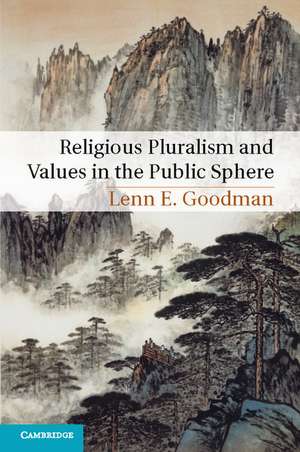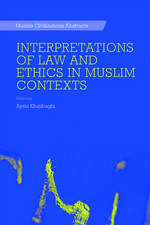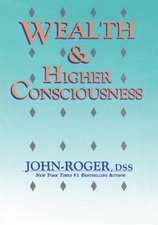Religious Pluralism and Values in the Public Sphere
Autor Lenn E. Goodmanen Limba Engleză Paperback – 6 apr 2014
| Toate formatele și edițiile | Preț | Express |
|---|---|---|
| Paperback (1) | 205.92 lei 43-57 zile | |
| Cambridge University Press – 6 apr 2014 | 205.92 lei 43-57 zile | |
| Hardback (1) | 549.54 lei 43-57 zile | |
| Cambridge University Press – 6 apr 2014 | 549.54 lei 43-57 zile |
Preț: 205.92 lei
Nou
Puncte Express: 309
Preț estimativ în valută:
39.40€ • 41.25$ • 32.60£
39.40€ • 41.25$ • 32.60£
Carte tipărită la comandă
Livrare economică 07-21 aprilie
Preluare comenzi: 021 569.72.76
Specificații
ISBN-13: 9781107658059
ISBN-10: 1107658055
Pagini: 227
Dimensiuni: 138 x 215 x 13 mm
Greutate: 0.27 kg
Ediția:New.
Editura: Cambridge University Press
Colecția Cambridge University Press
Locul publicării:New York, United States
ISBN-10: 1107658055
Pagini: 227
Dimensiuni: 138 x 215 x 13 mm
Greutate: 0.27 kg
Ediția:New.
Editura: Cambridge University Press
Colecția Cambridge University Press
Locul publicării:New York, United States
Cuprins
Introduction; 1. Religious pluralism; 2. Naked in the public square; 3. Minima and maxima; 4. The road to Kazanistan; Some concluding thoughts.
Recenzii
'Lenn Goodman invites us to consider - through insight, suggestion, and example - how mature, thoughtful pluralists would decide about matters of public policy, human rights, and humanitarian intervention. While he does not scant highly empirical, topical political discussions, he traces the values that inform such current discussions down to their philosophical foundations. In this way, Goodman's book is a unique contribution to the literature on pluralism. It is written in an inimitable literary style; its prose is resonant with rich descriptions, vivid examples, evocative commentaries on texts from several religious traditions, lucidly argued moral suasion, and careful scholarly criticism.' Alan Mittleman, The Jewish Theological Seminary
'Lenn Goodman offers a sustained critique of John Rawls's still influential 1993 book, Political Liberalism. Goodman argues that Rawls's professed 'pluralism' fails as it eliminates religious voices from the public discourse he envisions for democratic societies. Instead, Goodman argues for the necessity of metaphysical affirmations, especially affirmations of human nature, in formulating any coherent ethical-political system, with religions as the usual sites of metaphysically founded ways of life. Goodman's writing is refreshingly non-technical, and his scholarship is thorough in both classical religious and philosophical sources, as well as in the secondary literatures about these classical sources and about Rawls's philosophy.' David Novak, University of Toronto
'… a significant work that straddles the boundaries of political philosophy and religious ethics. Goodman's style of rich description, evocative examples, and a deep knowledge of both Rawls and the religious traditions under consideration made this volume a pleasure to read.' Angus M. Slater, SCTIW Review
'Lenn Goodman offers a sustained critique of John Rawls's still influential 1993 book, Political Liberalism. Goodman argues that Rawls's professed 'pluralism' fails as it eliminates religious voices from the public discourse he envisions for democratic societies. Instead, Goodman argues for the necessity of metaphysical affirmations, especially affirmations of human nature, in formulating any coherent ethical-political system, with religions as the usual sites of metaphysically founded ways of life. Goodman's writing is refreshingly non-technical, and his scholarship is thorough in both classical religious and philosophical sources, as well as in the secondary literatures about these classical sources and about Rawls's philosophy.' David Novak, University of Toronto
'… a significant work that straddles the boundaries of political philosophy and religious ethics. Goodman's style of rich description, evocative examples, and a deep knowledge of both Rawls and the religious traditions under consideration made this volume a pleasure to read.' Angus M. Slater, SCTIW Review
Notă biografică
Descriere
Goodman argues we can respect one another and learn from one another's ways without sharing them or relinquishing our own.














